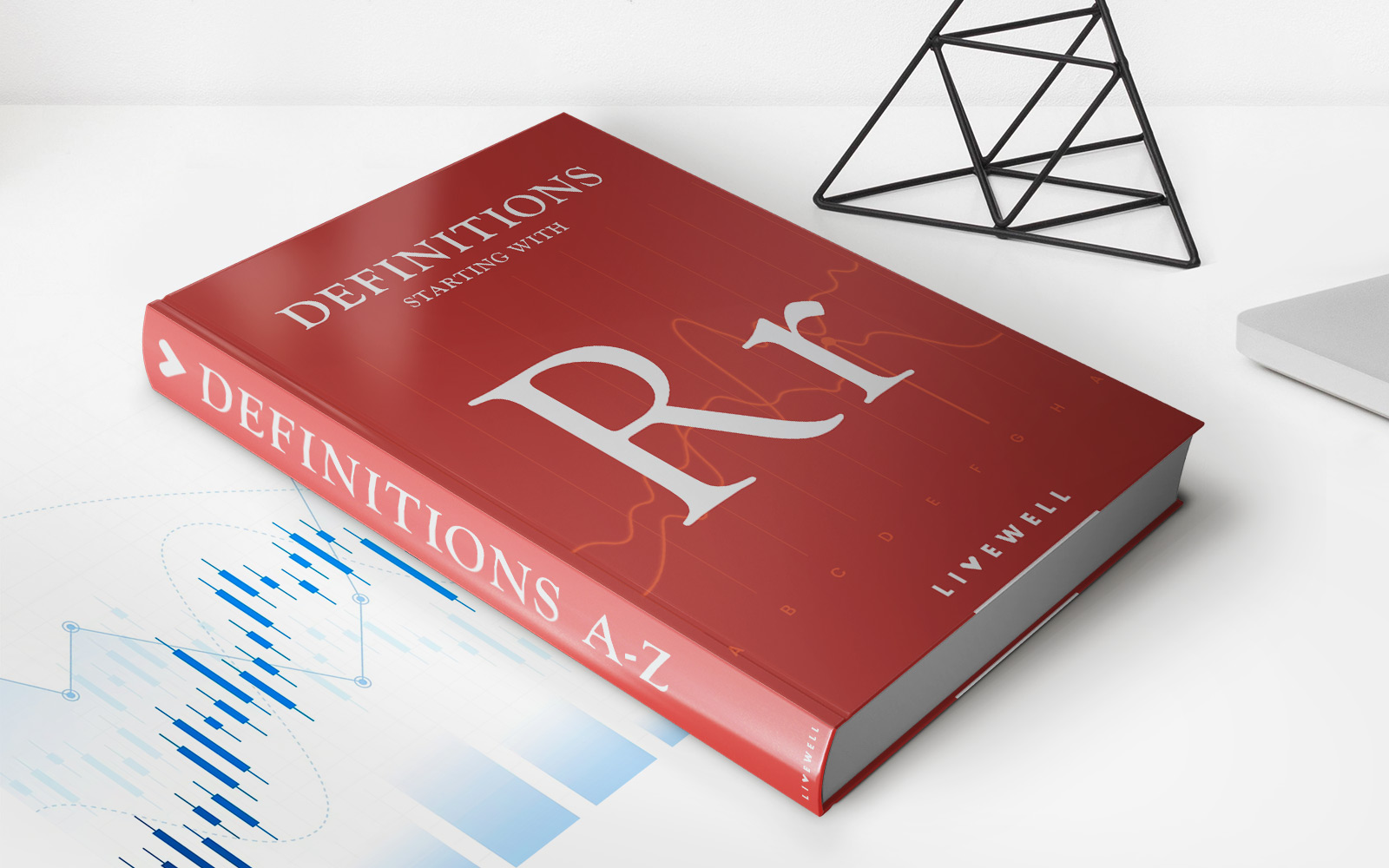

Finance
Why Sellers Don’t Like VA Loans?
Published: February 17, 2024
Discover why sellers may be hesitant about VA loans and how it impacts your home buying journey. Learn more about VA loan financing challenges and solutions.
(Many of the links in this article redirect to a specific reviewed product. Your purchase of these products through affiliate links helps to generate commission for LiveWell, at no extra cost. Learn more)
Table of Contents
Introduction
VA loans, a valuable benefit offered to active-duty service members, veterans, and eligible surviving spouses, provide an array of advantages such as no down payment, competitive interest rates, and relaxed credit requirements. Despite these benefits, some sellers exhibit reluctance when presented with offers involving VA loans. This article seeks to delve into the reasons behind such reluctance and dispel common misconceptions surrounding VA loans. By shedding light on the intricacies of VA loans, we aim to provide a comprehensive understanding of the factors that may influence a seller’s perspective.
It is important to recognize that VA loans are designed to support those who have served their country and are a testament to the nation’s commitment to honoring their service. However, certain aspects of VA loans, such as appraisal and inspection requirements, funding fees, and property condition standards, can lead to apprehension among sellers. By addressing these concerns, we can foster a more informed and supportive environment for veterans and active-duty service members seeking to utilize their well-deserved benefits. Let’s explore the common misconceptions and challenges associated with VA loans that contribute to the reluctance of sellers to accept offers involving this type of financing.
Misconceptions about VA Loans
One of the primary reasons why sellers may exhibit reluctance towards VA loans stems from misconceptions surrounding this type of financing. Common myths and misunderstandings often lead to apprehension and hesitation on the part of sellers. It is crucial to address these misconceptions to foster a more inclusive and informed real estate market. Let’s debunk some of the prevalent myths associated with VA loans:
- Lengthy Approval Process: Contrary to popular belief, VA loans do not inherently entail a significantly longer approval process than conventional loans. While there may be specific appraisal and inspection requirements, the overall approval timeline is comparable to other loan types.
- Restrictive Property Eligibility: There is a misconception that VA loans can only be used to finance traditional single-family homes. In reality, VA loans can be utilized for various property types, including condominiums and multi-unit properties, provided they meet the VA’s property requirements.
- Stringent Appraisal Standards: Some sellers may believe that VA appraisals are excessively strict, leading to concerns about the property meeting the required standards. In truth, VA appraisals focus on ensuring that the property is safe, structurally sound, and sanitary, rather than minor cosmetic issues.
By dispelling these misconceptions and providing clarity on the true nature of VA loans, we can alleviate the concerns of sellers and encourage a more open-minded approach to accepting offers backed by VA financing.
Appraisal and Inspection Requirements
One of the factors contributing to sellers’ reservations about VA loans is the specific appraisal and inspection requirements associated with this type of financing. While these requirements are designed to ensure the safety and habitability of the property, they can lead to misconceptions and concerns among sellers. It is essential to understand the nuances of these requirements to address sellers’ apprehensions effectively.
VA loans necessitate a VA appraisal conducted by a VA-assigned appraiser. The appraisal aims to determine the property’s value and assess its overall condition. While the appraisal process is similar to that of conventional loans, there are distinct aspects that sellers should be aware of. VA appraisals emphasize the property’s compliance with the VA’s Minimum Property Requirements (MPRs), which focus on essential aspects such as safety, structural integrity, and sanitation. This may lead to concerns among sellers regarding the property’s eligibility under these requirements.
Furthermore, VA loans mandate a pest inspection to identify any potential issues such as termite infestations. While conventional loans may not always require this inspection, it is a standard part of the VA loan process. Sellers should be cognizant of this additional inspection requirement and its implications on the transaction.
By comprehensively understanding these appraisal and inspection requirements, sellers can proactively address any concerns and ensure a smooth transaction process. It is crucial to communicate transparently with all involved parties to dispel misconceptions and foster a more informed and cooperative real estate environment.
Funding Fee
Another aspect that may contribute to sellers’ reservations about VA loans is the funding fee associated with this type of financing. The funding fee is a one-time cost that helps offset the taxpayer expense of the VA loan program. While this fee offers numerous benefits to the borrowers, sellers may have concerns or misconceptions about its implications on the transaction.
The funding fee for VA loans varies based on the borrower’s military service, down payment amount, and whether it is the first time or subsequent use of the VA loan benefit. While this fee is typically rolled into the loan amount, sellers may perceive it as an additional financial consideration that could affect the overall transaction dynamics. It is important to clarify the nature of the funding fee and its impact on the loan terms to alleviate any apprehensions on the part of the seller.
Moreover, sellers should be aware that the funding fee contributes to the financial sustainability of the VA loan program, which has consistently provided valuable homeownership opportunities to veterans and service members. By understanding the purpose and benefits of the funding fee, sellers can gain a more comprehensive perspective on the significance of VA loans in supporting those who have served our country.
Effectively addressing the funding fee and providing clarity on its implications can foster a more supportive and informed environment for sellers considering offers backed by VA financing. Open communication and transparency regarding the funding fee can contribute to a smoother and more collaborative real estate transaction process.
Closing Costs
When considering offers involving VA loans, sellers may express concerns about the potential impact of closing costs on the transaction. While VA loans offer significant benefits to the borrowers, including limitations on closing costs, sellers may still harbor misconceptions or reservations regarding this aspect of the transaction.
It is crucial for sellers to understand that VA loans place limitations on the types of closing costs that veterans are allowed to pay. This can lead to a scenario where the seller may be responsible for covering a portion of the closing costs that would typically be the buyer’s responsibility in a conventional loan transaction. This shift in responsibility may raise concerns for sellers who are accustomed to traditional real estate transactions.
Moreover, the VA loan program prohibits certain fees, such as attorney fees or broker fees, from being charged to the veteran, further impacting the allocation of closing costs. Sellers should be aware of these restrictions to accurately assess the financial implications of accepting an offer involving VA financing.
By providing sellers with transparent information about the specific closing cost considerations related to VA loans, real estate professionals can address any potential misconceptions and foster a more informed and cooperative transaction environment. Educating sellers about the nuances of closing costs in VA loan transactions can contribute to a smoother and more mutually beneficial real estate experience for all parties involved.
Lengthy Closing Process
One of the concerns that sellers may have regarding VA loans is the perception of a potentially lengthy closing process. While it is crucial to acknowledge that the closing timeline can vary based on individual circumstances and market conditions, there are specific factors associated with VA loans that sellers should consider when evaluating the potential impact on the transaction timeline.
VA loans may involve additional steps in the underwriting and approval process, such as the VA appraisal and compliance with the VA’s property standards. These specific requirements, while intended to ensure the safety and habitability of the property, can lead to the misconception of a prolonged closing process. It is essential for sellers to be aware of these distinctive aspects of VA loan transactions to accurately assess the potential timeline for closing.
Real estate professionals play a pivotal role in providing sellers with realistic expectations and transparent communication regarding the closing process for VA loans. By addressing any concerns or misconceptions about the timeline and diligently managing the transaction process, real estate professionals can alleviate sellers’ apprehensions and foster a more collaborative and informed approach to accepting offers involving VA financing.
Furthermore, emphasizing the benefits and value of supporting veterans and service members through VA loans can contribute to a more empathetic and understanding perspective among sellers. By highlighting the significance of the VA loan program and its impact on the lives of those who have served our country, sellers may develop a more positive outlook on the potentially nuanced closing process associated with VA loans.
Property Condition Requirements
Concerns about property condition requirements associated with VA loans can influence sellers’ perspectives on accepting offers backed by this type of financing. It is essential to address these concerns and provide clarity on the specific property condition standards to foster a more informed and cooperative real estate environment.
VA loans necessitate compliance with the VA’s Minimum Property Requirements (MPRs), which focus on essential aspects such as safety, structural integrity, and sanitation. While these requirements are designed to ensure the habitability and safety of the property, sellers may perceive them as overly stringent or restrictive. It is crucial to communicate transparently with sellers about these standards and dispel any misconceptions about their implications on the transaction.
Additionally, sellers should be aware that VA appraisals prioritize identifying significant property issues that could affect the health and safety of the occupants. While cosmetic imperfections are not the primary focus, sellers may still have concerns about the property meeting the VA’s standards. By proactively addressing these concerns and providing sellers with a comprehensive understanding of the property condition requirements, real estate professionals can facilitate a more supportive and collaborative transaction process.
Emphasizing the importance of these property condition standards in ensuring the well-being of veterans and service members and highlighting the broader societal impact of supporting VA loans can contribute to a more empathetic and understanding perspective among sellers. By fostering a deeper understanding of the significance of these requirements, real estate professionals can help sellers appreciate the value of accommodating offers involving VA financing.
Conclusion
Addressing the concerns and misconceptions that contribute to sellers’ reluctance regarding VA loans is essential in fostering a more inclusive and informed real estate market. By dispelling myths and providing transparent information about the intricacies of VA loans, real estate professionals can bridge the understanding gap and create a more supportive environment for veterans and active-duty service members seeking to utilize their well-deserved benefits.
It is crucial to emphasize that VA loans are a testament to the nation’s commitment to honoring the service of veterans and active-duty personnel. By highlighting the numerous benefits of VA loans, including no down payment requirements, competitive interest rates, and limitations on closing costs for the borrowers, sellers can gain a deeper appreciation for the value that VA loans bring to the real estate landscape.
Open communication, education, and empathy play pivotal roles in addressing sellers’ concerns and fostering a more collaborative approach to accepting offers involving VA financing. Real estate professionals can serve as advocates for both sellers and veteran homebuyers, facilitating transparent dialogue and guiding all parties through the unique aspects of VA loan transactions.
Ultimately, by nurturing a deeper understanding of VA loans and their significance in supporting those who have served our country, sellers can make informed decisions that not only benefit their real estate transactions but also contribute to the broader goal of honoring and supporting our veterans and active-duty service members.














